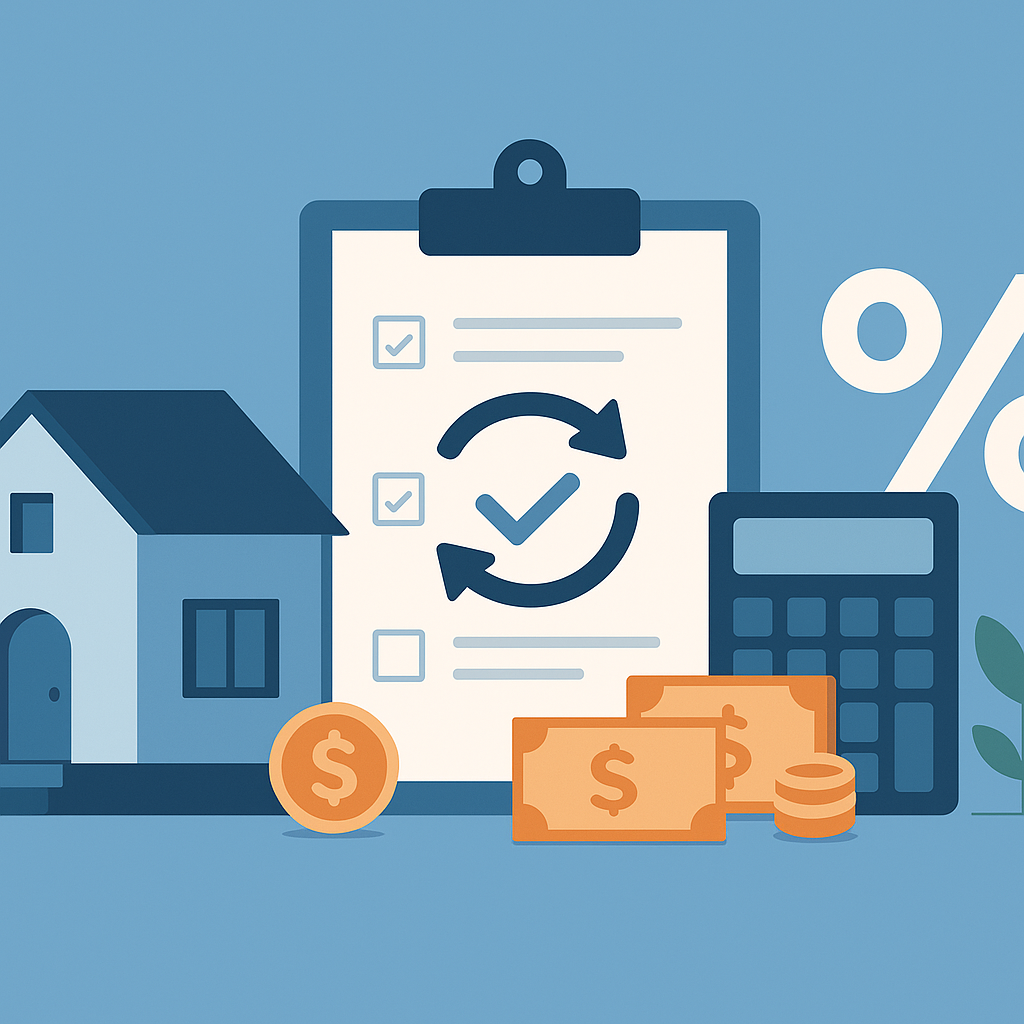Refinance guide soft credit pull pre-qualification for refinance
Soft Credit Pull Pre-Qualification for Refinance: What It Is and When It Makes Sense
A soft credit pull pre-qualification for a refinance is an initial, non-intrusive check of your credit profile and basic loan eligibility performed by a lender or online marketplace. It delivers an informal estimate of the interest rate, loan options, and maximum loan amount you might qualify for without performing a hard credit inquiry. Because it doesn’t affect your credit score, a soft pull is useful for homeowners who want to shop rates and compare lenders before committing to a formal application.
When it makes sense
- If you’re exploring whether refinancing could lower your monthly payment or shorten your term without risk to your credit score.
- If you want a quick, side-by-side comparison of multiple lenders’ preliminary offers.
- If you’re early in the decision process and don’t have all supporting documents yet.
- If you suspect your credit has improved recently and want to check potential new terms before applying.
Benefits and Drawbacks
Benefits
- No impact on credit score: Soft pulls are not visible to mortgage scoring models, so shopping won’t lower your score.
- Fast and convenient: Many lenders provide instant pre-qualification results online with only basic information.
- Risk-free rate comparison: You can compare potential rates, fees, and loan options across multiple lenders.
- Helps identify issues early: A pre-qual can reveal obvious credit or income concerns so you can address them before applying.
Drawbacks
- Not binding or guaranteed: Pre-qualification is an estimate, not a promise; final terms require a full application and underwriting.
- Based on limited information: Soft pulls use basic credit and self-reported income/asset info and may not capture all debts or property details.
- Rates can change: Market conditions, updated credit data, or detailed underwriting can result in different offers at application.
- Potential confusion: Homeowners may over-rely on a pre-qual and be surprised by a different outcome after the hard pull.
Costs and Fees
In most cases, obtaining a soft credit pull pre-qualification is free. Lenders frequently offer it as a marketing tool to attract borrowers. However, if you move forward to a formal refinance application, expect the usual closing-related expenses. Common refinance costs include:
- Application or processing fees (sometimes waived)
- Appraisal fee
- Title search and title insurance
- Underwriting and origination fees
- Recording fees and prepaid items (taxes, escrow)
- Payoff fees for your existing mortgage, if applicable
Always ask the lender if a pre-qual carries any charge and request a Loan Estimate once you apply formally so you can compare total costs.
Step-by-Step Process
- Prepare basic information: Have your current mortgage balance, estimated home value, income, and monthly debts ready.
- Shop lenders: Use banks, credit unions, and online lenders. Many sites let you request a soft pull pre-qual from multiple lenders without affecting your score.
- Submit the soft pull request: Provide your name, address, Social Security number (often optional or partially masked), and basic financial details. The lender performs a soft credit check and returns an estimated rate and loan options.
- Compare offers: Evaluate interest rates, estimated closing costs, estimated monthly payments, and terms. Ask for a sample Loan Estimate if available.
- Choose a lender and apply: If you’re satisfied, complete the formal refinance application. At that point the lender will perform a hard credit pull and request full documentation.
- Underwriting and appraisal: Lender verifies income, assets, title, and orders an appraisal. Final approval depends on these results.
- Close the refinance: Review the Closing Disclosure, sign documents, and pay closing costs or roll them into the loan if eligible.
Common Pitfalls to Avoid
- Confusing pre-qualification with pre-approval: Pre-approval (often used in home purchases) involves deeper verification and is closer to a guaranteed loan; pre-qualification via soft pull is preliminary.
- Relying on rate quotes without locking: Rates quoted during pre-qualification are estimates and typically expire; locking requires a formal application and sometimes a fee.
- Failing to disclose liabilities: Omitting debts or financial obligations during pre-qual can lead to surprising denials after the hard pull.
- Assuming free means no costs later: Even if the pre-qual is free, the refinance itself can carry significant fees—get a full Loan Estimate early.
- Applying for too many formal loans: While multiple soft pulls are harmless, several hard inquiries in a short window can harm your credit. Coordinate rate shopping within a limited timeframe and avoid unnecessary formal applications.
FAQ
Does a soft credit pull affect my credit score?
No. Soft credit pulls do not affect your credit score and are not visible to lenders evaluating your creditworthiness. They are safe for shopping around.
How accurate are the rates I see from a soft pre-qualification?
Rates from a soft pre-qual are estimated and based on limited information. They provide a useful ballpark but can change after a hard pull, full documentation, appraisal, and underwriting.
Can I lock a rate with a pre-qualification?
No. Rate locks are tied to a formal loan application and require a hard credit pull. Pre-qualification only gives an estimated rate; you must apply and request a lock to secure it.
How long does a pre-qualification last?
Pre-qualification validity varies by lender, typically between 30 and 90 days. Because market rates and your credit can change, use pre-qual results as a short-term guide rather than a guarantee.
Soft credit pull pre-qualification is a valuable, low-risk step for homeowners researching a refinance. It helps compare lenders and get a sense of possible savings without hurting your credit — but it should be treated as an early estimate, not a final loan commitment. When you’re ready to move forward, expect a hard credit pull and full underwriting before final terms are set.
META: soft credit pull pre-qualification for refinance — overview, benefits, costs, step-by-step guide, common pitfalls, and FAQs for homeowners.







